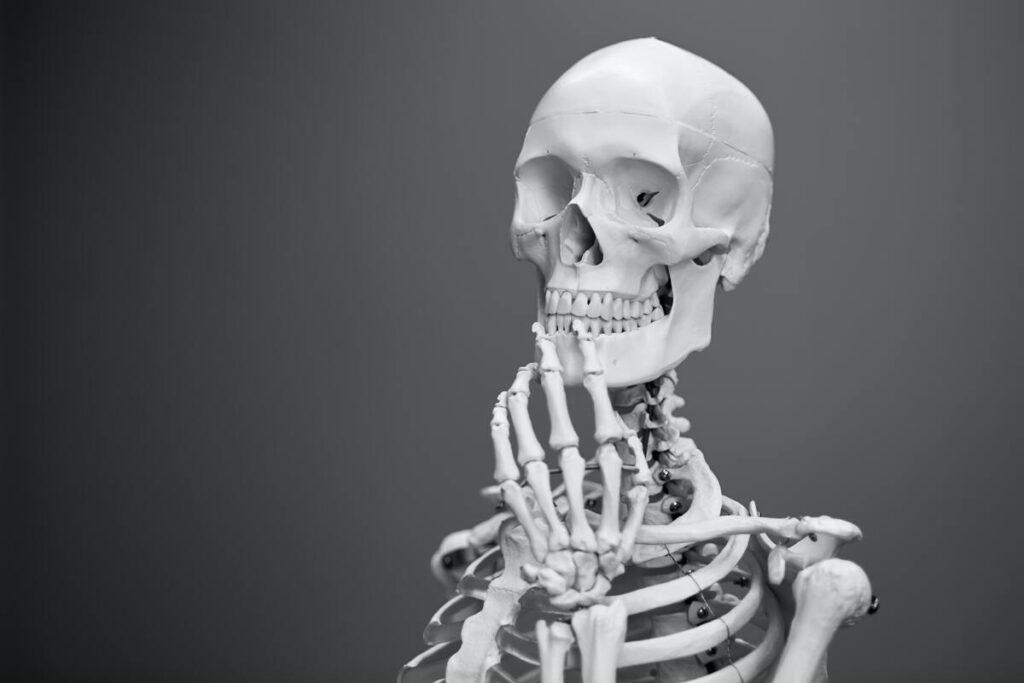Healthy bones are important for overall health. This allows your body to move, protects your organs, and stores minerals. Unfortunately, as you age, your bones can become weak and fragile.
Thankfully, there are several things you can do to support bone health. The following tips can help you keep your bones healthy and strong:
Take Care of Your Teeth
There are many potential causes of bone loss. This can include aging, certain medical conditions, medications, smoking, poor nutrition, and lack of physical activity. While aging is the most common cause of bone loss, missing teeth can also play a role.
When you lose a tooth, the bone that supports it begins to dissolve. This process is called resorption. Resorption can lead to decreased bone density and an increased risk of fractures. By taking good care of your teeth, you can avoid bone loss and other problems associated with missing teeth. This includes brushing and flossing daily, avoiding smoking, visiting your dentist regularly, and eating a healthy diet.
If you already have a missing tooth, consider tooth replacement options. A dental implant, for instance, can help prevent further bone loss and restore function. You only need to find a reputable clinic offering reliable dental implant services to get one. The right dental care professional will have the necessary licenses and experience to place the implant and help ensure the procedure is successful.
Don’t Smoke
Smoking is never good for your health. But did you know that it’s also bad for your bones? Smoking increases your risk of bone loss, osteoporosis, and fractures.
When you smoke, the chemicals in cigarettes damage the cells that help build bones. This can lead to decreased bone mass and an increased risk of fractures. If you smoke, quitting is the best thing you can do for your bone health.
- To increase your chances of successfully quitting smoking, you can try the following strategies: nicotine replacement therapy
- prescription medications
- counseling
Get Enough Calcium and Vitamin D
Calcium is one of the main minerals found in bones and teeth and is essential for strong bones. Vitamin D, on the other hand, helps the body absorb calcium. A lack of either of these nutrients can lead to bone loss and other problems.
Your daily dose of Vitamin D and Calcium is crucial for bone health. You can get Vitamin D in fortified milk, fatty fish, and exposure to sunlight. Calcium-rich foods include dairy products, dark leafy greens, and certain types of fish like sardines and salmon. You can also take supplements if you are not getting enough nutrients in your diet.
Exercise Regularly
Staying active is another must-do for better bone health. Exercise helps maintain bone density and can even help prevent or slow osteoporosis progression.
Weight-bearing and resistance exercises are the best types of exercise for bone health. Think of walking, running, and stair climbing. Resistance exercises, on the other hand, help build and maintain muscle mass. This can be done with the help of exercise equipment, such as dumbbells, resistance bands, or weight machines.
Even if you’re unable to do weight-bearing or resistance exercises, plenty of other options can help keep your bones healthy. These include swimming, biking, and Tai Chi.
Limit Alcohol Intake
Drinking too much alcohol can lead to many problems, including liver disease, heart disease, and cancer. But did you know that it can also damage your bones?
Drinking excessive amounts of alcohol can also lead to an increased risk of fractures and a decrease in bone density. If you drink alcohol, it’s important to do so in moderation. For men, this means no more than two drinks per day. For women, it means no more than one drink per day.
Some people think they can function perfectly even if they drink regularly. Know that there is such a thing as a functional alcoholic. A functional alcoholic can maintain day-to-day responsibilities, such as work and family obligations, despite drinking excessively.
While it may seem like everything is under control, excessive drinking can still take a toll on your health, including your bones. If you think you may be a functional alcoholic, seek professional help. Many resources, such as Alcoholics Anonymous, can help you on the road to recovery.
Maintain a Healthy Weight
Being overweight or obese puts you at risk for several health problems, including heart disease, stroke, and diabetes. But what most people don’t realize is that it can also lead to bone loss and osteoporosis.
Carrying extra weight puts added stress on your bones and joints, which can decrease bone density over time. This makes you more susceptible to fractures and other problems.
If you’re overweight or obese, take steps to lose weight in a healthy way. This includes eating a healthy diet and getting regular exercise. Working with a doctor or a registered dietitian can help you develop a plan that’s right for you.
Losing weight is not easy, but it’s worth it for your health. Not only will you improve your overall health, but you’re also doing your bones a favor.
The health of your bones lies in your hands. Take the necessary steps to protect them, and you’ll be on your way to a healthy, happy life. You can start supporting better bone health with the help of these tips.

